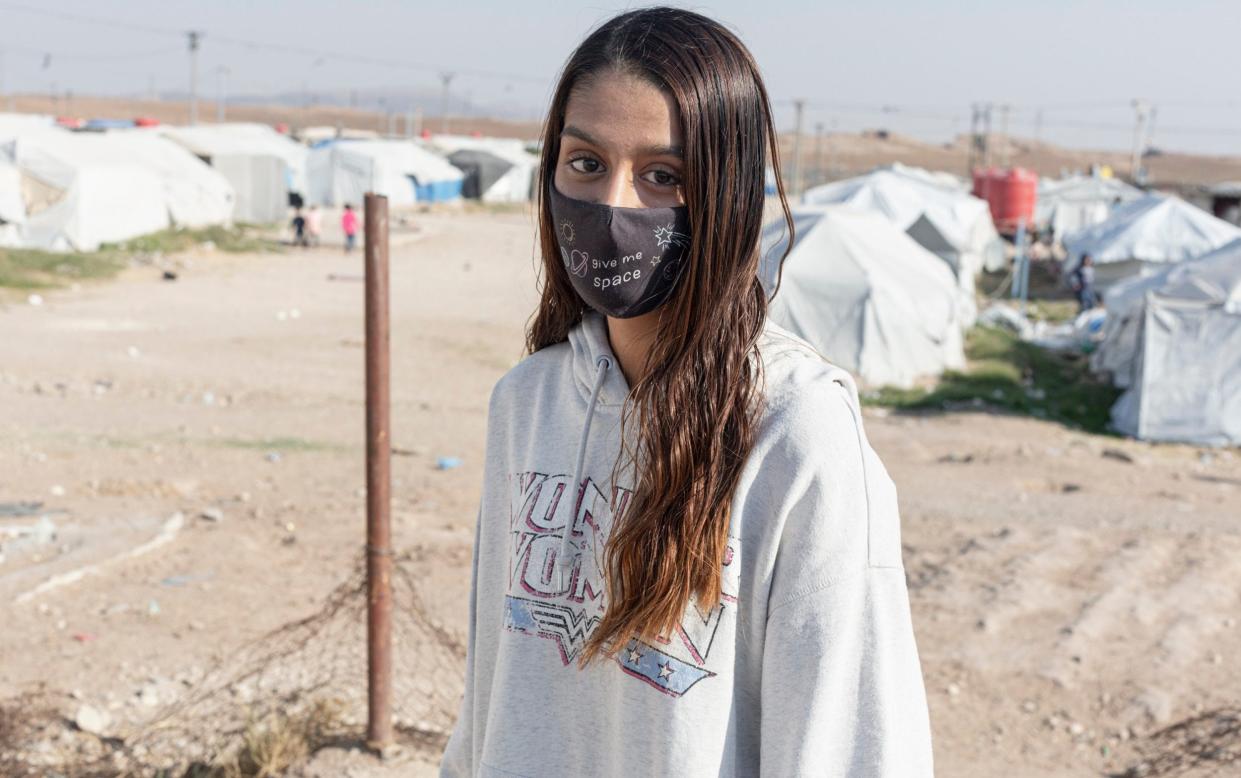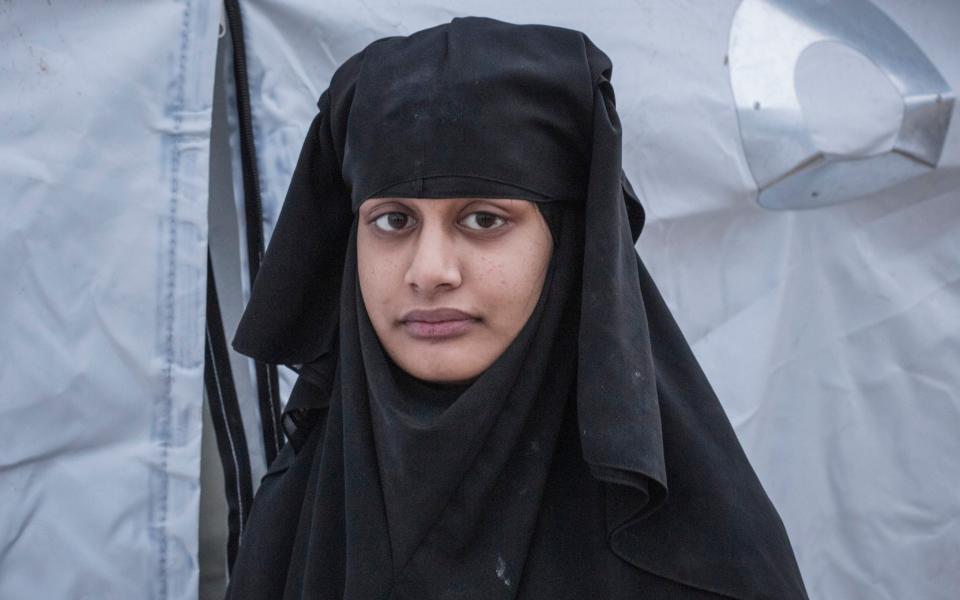British extremists returning to Syria for training, police warn ahead of Shamima Begum ruling

- Oops!Something went wrong.Please try again later.
Growing numbers of British extremists are being drawn back to Syria to join jihadist groups, counter-terrorism police have warned on the eve of Shamima Begum’s citizenship ruling.
Ms Begum, now 23, fled the UK at the age of 15 to join the Islamic State (IS) terror group in Syria and had her British citizenship revoked when she resurfaced in a refugee camp in 2019.
She mounted a legal challenge against the Home Secretary’s decision, arguing that MI5 was wrong to conclude she represents a threat to the public and claiming she was trafficked to Syria for sexual exploitation.
The Special Immigration Appeals Commission (SIAC) will rule on her appeal on Wednesday, with Ms Begum awaiting her fate in detention at the foetid al-Roj camp in northern Syria.
The case comes as counter-terrorism chiefs are braced to face down a renewed threat from extremists who, like Ms Begum, have travelled, or plan to travel, overseas to join militant groups
Matt Jukes, the head of counter-terrorism policing, said that an increasing number of jihadists were being detected travelling to countries such as Syria, several years after IS lost its grip on the region.
Despite the recent rise in Right-wing terror plotters, Islamist terrorism is still considered to be the greatest threat to the British public, according to the police chief.
He said: “At the latter part of last year, it felt to me we were starting to engage again with threats that we were more familiar with.
“We are starting to see indications of interest in attack-planning amongst overseas groups, attack-planning in Europe, and in some cases that has been sparked by instability in their own parts of the world - places such as Afghanistan and Syria or parts of Africa.
“Our own casework is starting to show a renewed interest in travel to places of past conflicts and financial arrangements being made across borders; money and people moving for the purpose of terrorism again.”

Authorities fear that if Ms Begum were to win the case, it could set a precedent which allows an influx of potentially dangerous jihadists.
It has been estimated that around 60 British citizens are being held in indefinite detention in Syria after fleeing areas once controlled by Islamic State.
A greater threat could be posed by up to 150 terror suspects who have been stripped of their British citizenship and could try to challenge their own rulings if Ms Begum’s case succeeds.
During evidence hearings for the citizenship appeal in November, a senior MI5 officer said Ms Begum “knew what she was doing” when she travelled to join IS in Syria.
The officer, referred to in court as Witness E, said that IS had committed a string of high-profile atrocities by the time Ms Begum left Bethnal Green, east London.
“In my mind and that of colleagues, it is not conceivable that even a 15-year-old - that 15-year-old having been predicted As and A*s, an intelligent, articulate and presumably critically thinking individual - would not know what (IS) was about,” he said.
“In some respects, I do believe she knew what she was doing and had agency in doing so.”
But Ms Begum’s case was supported by experts including Richard Barrett, the former director of global counter-terrorism at MI6.
In a report prepared for Ms Begum’s legal team, he wrote that it was “seriously open to doubt” that a pregnant teenage girl - as Ms Begum was when she resurfaced in 2019 - “presented a physical threat so great as to overwhelm the resources of the state”.
He continued: “She has been deprived of her citizenship as an individual without any explanation of how a giggly and impressionable member of a group of schoolgirls might have turned into a singular and uncontrollable monster.”
The former spy chief said the UK was “alone” in its response to the problem of repatriating citizens who travelled to join IS, compared with countries such as the US, Germany and France.
“States that have grasped the nettle, and repatriated ‘foreign fighters’ are no less safe and secure than states that have not,” he wrote.
“Indeed, we consider the contrary to have been the experience.”
In the latest episode of a BBC podcast series featuring Ms Begum's most extensive series of interviews to date, released on Wednesday, she admits feeling responsible for the death of the two school friends who fled to Syria with her in 2015.
After describing how one of the girls, Kadiza Sultana, died in an airstrike in Raqqa, Ms Begum said: "It is a constant reminder that she could be alive today but she is not and in a way it may be my fault, if I had said 'I don't want to go to Isis guys, don't come either', or if I had told the police the truth, maybe she should will still be alive.
"Maybe they never would have spoken to me again because they thought I was a snitch, but they would still be alive and that would be enough for me."
The Shamima Begum Story podcast is available now on BBC Sounds.

